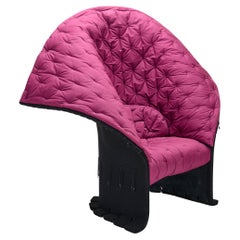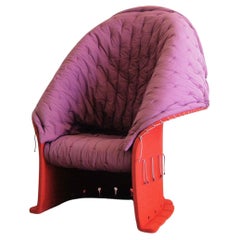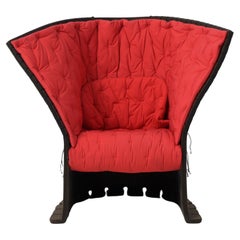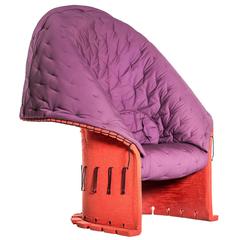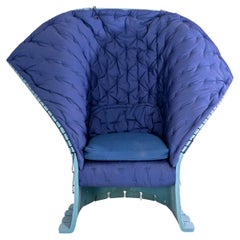Pesce Feltri Chair
21st Century and Contemporary Italian Mid-Century Modern Chairs
Steel
Vintage 1980s Italian Mid-Century Modern Armchairs
Textile, Felt
Vintage 1980s Italian Modern Lounge Chairs
Felt
Recent Sales
Vintage 1980s Chairs
Felt, Resin
Vintage 1980s Italian Post-Modern Chairs
Felt, Resin
Vintage 1980s Italian Post-Modern Chairs
Felt
Vintage 1980s Italian Post-Modern Lounge Chairs
Cotton, Felt, Resin
Late 20th Century Italian Lounge Chairs
Cotton, Felt
Late 20th Century Italian Modern Lounge Chairs
Felt
Vintage 1980s Italian Post-Modern Lounge Chairs
Felt
Vintage 1980s Italian Chairs
Vintage 1980s Italian Modern Lounge Chairs
Felt
Late 20th Century Italian Post-Modern Chairs
Fabric, Felt, Wool
Late 20th Century Italian Lounge Chairs
Foam
People Also Browsed
21st Century and Contemporary Italian Modern Pillows and Throws
Silk
Vintage 1930s Czech Art Deco Lounge Chairs
Beech, Sheepskin
Early 20th Century Meiji Coffee and Cocktail Tables
Wood
21st Century and Contemporary Brazilian Modern Armchairs
Bouclé
21st Century and Contemporary Swedish Mid-Century Modern Table Lamps
Textile
2010s South African Minimalist Pedestals
Hardwood
2010s British Scandinavian Modern Ottomans and Poufs
Velvet, Mohair, Oak
Vintage 1950s Italian Mid-Century Modern Beds and Bed Frames
Metal
2010s Italian Mid-Century Modern Vases
Resin
Vintage 1970s Italian Post-Modern Beds and Bed Frames
Leather, Wood
Mid-20th Century Italian Mid-Century Modern Lounge Chairs
Brass
Vintage 1980s Italian Mid-Century Modern Floor Lamps
Aluminum, Enamel
Vintage 1970s American Hollywood Regency Armchairs
Sheepskin, Giltwood, Upholstery
Vintage 1970s Italian Post-Modern Beds and Bed Frames
Steel, Chrome
2010s American Table Lamps
Brass
21st Century and Contemporary German Mid-Century Modern Chandeliers and ...
Metal, Iron
Pesce Feltri Chair For Sale on 1stDibs
How Much is a Pesce Feltri Chair?
Gaetano Pesce for sale on 1stDibs
Gaetano Pesce was of a generation of Italian architects who in the early 1960s rebelled against the industrial perfection of modernism by conceiving new furniture and objects that were at once expressive and eccentric in form; or you might say they were more like art than functionalist design.
Born in the picturesque coastal Italian city of La Spezia in 1939, Pesce was a precocious talent who could have forged a career as an artist but opted instead to go to Venice to study architecture because, as he has said, it was “the most complex of all the arts.” Rather than having new worlds opened to him at design school, however, Pesce found the rationalist curriculum oppressive in its insistence on standardization and prescribed materials and technologies.
Pesce wanted to explore the latest of both materials and technologies to create objects and buildings never before imagined, with what he called “personalities” that spoke to the issues of the day. He was keen to examine ways to diversify mass production so that each manufactured work could be distinct.
In 1964, Pesce met Cesare Cassina, of the forward-looking furniture company C&B Italia in Milan (now known as B&B Italia), for whom he would create many important designs, beginning with a collection of what he called “transformational furniture” — two chairs and a loveseat — made entirely out of high-density polyurethane foam. To make the pieces easy to ship and cost-efficient, he proposed that after being covered in a stretch jersey, they be put in a vacuum, then heat-sealed flat between vinyl sheets. Once the foam was removed from its packaging, the piece returned to its original shape — hence, the name Up for the series, which debuted in 1969.
In addition to these pieces, Pesce proposed for the collection something he referred to as an “anti-armchair,” which took the shape of a reclining fertility goddess, the iconic Donna.
Producing the piece's complex form turned out to be a technical challenge. Bayer, the foam’s manufacturer, deemed it impossible to accomplish. Pesce persisted and came up with a new procedure, demonstrating not only the designer’s key role in researching the nature and potential of new materials but also his vital importance in “doubting rules.” The Up chair and accompanying ottoman were born, and they were revolutionary in more ways than one.
In the early 1970s, Pesce began exploring one of his key concepts, the idea of the industrial originals. Employing a mold without air holes, and adding a blood-red dye to the polyurethane, he cast a bookcase that resembled a demolished wall, the rough edges of the shelves and posts resulting from fissures in the material made by trapped air.
Through his research into polyurethane, Pesce figured out a way to make a loveseat and armchair using only a simple wood frame and strong canvas covering as a mold. Since the fabric developed random folds during the injection process, the pieces were similar but not identical. Cassina named the suite of furnishings Sit Down and introduced it in 1975. By experimenting with felt soaked in polyurethane and resin, Pesce conceived I Feltri, another collection of armchairs introduced by Cassina in 1987.
Pesce went on to live a life that defied expectation and convention and along the way became one of the most seminal figures in art and design.
Find vintage Gaetano Pesce chairs, sofas, vases and more on 1stDibs.
Finding the Right Seating for You
With entire areas of our homes reserved for “sitting rooms,” the value of quality antique and vintage seating cannot be overstated.
Fortunately, the design of side chairs, armchairs and other lounge furniture — since what were, quite literally, the early perches of our ancestors — has evolved considerably.
Among the earliest standard seating furniture were stools. Egyptian stools, for example, designed for one person with no seat back, were x-shaped and typically folded to be tucked away. These rudimentary chairs informed the design of Greek and Roman stools, all of which were a long way from Sori Yanagi's Butterfly stool or Alvar Aalto's Stool 60. In the 18th century and earlier, seats with backs and armrests were largely reserved for high nobility.
The seating of today is more inclusive but the style and placement of chairs can still make a statement. Antique desk chairs and armchairs designed in the style of Louis XV, which eventually included painted furniture and were often made of rare woods, feature prominently curved legs as well as Chinese themes and varied ornaments. Much like the thrones of fairy tales and the regency, elegant lounges crafted in the Louis XV style convey wealth and prestige. In the kitchen, the dining chair placed at the head of the table is typically reserved for the head of the household or a revered guest.
Of course, with luxurious vintage or antique furnishings, every chair can seem like the best seat in the house. Whether your preference is stretching out on a plush sofa, such as the Serpentine, designed by Vladimir Kagan, or cozying up in a vintage wingback chair, there is likely to be a comfy classic or contemporary gem for you on 1stDibs.
With respect to the latest obsessions in design, cane seating has been cropping up everywhere, from sleek armchairs to lounge chairs, while bouclé fabric, a staple of modern furniture design, can be seen in mid-century modern, Scandinavian modern and Hollywood Regency furniture styles.
Admirers of the sophisticated craftsmanship and dark woods frequently associated with mid-century modern seating can find timeless furnishings in our expansive collection of lounge chairs, dining chairs and other items — whether they’re vintage editions or alluring official reproductions of iconic designs from the likes of Hans Wegner or from Charles and Ray Eames. Shop our inventory of Egg chairs, designed in 1958 by Arne Jacobsen, the Florence Knoll lounge chair and more.
No matter your style, the collection of unique chairs, sofas and other seating on 1stDibs is surely worthy of a standing ovation.
